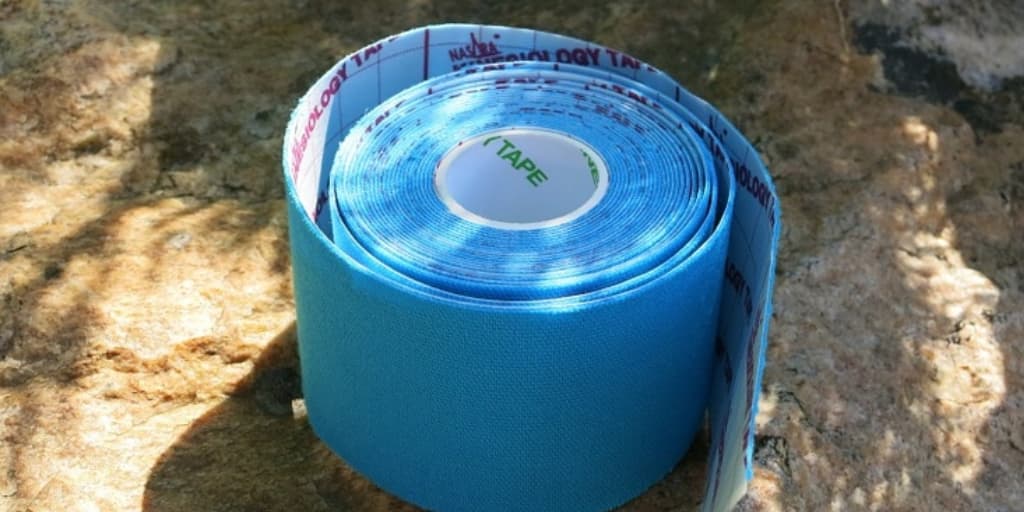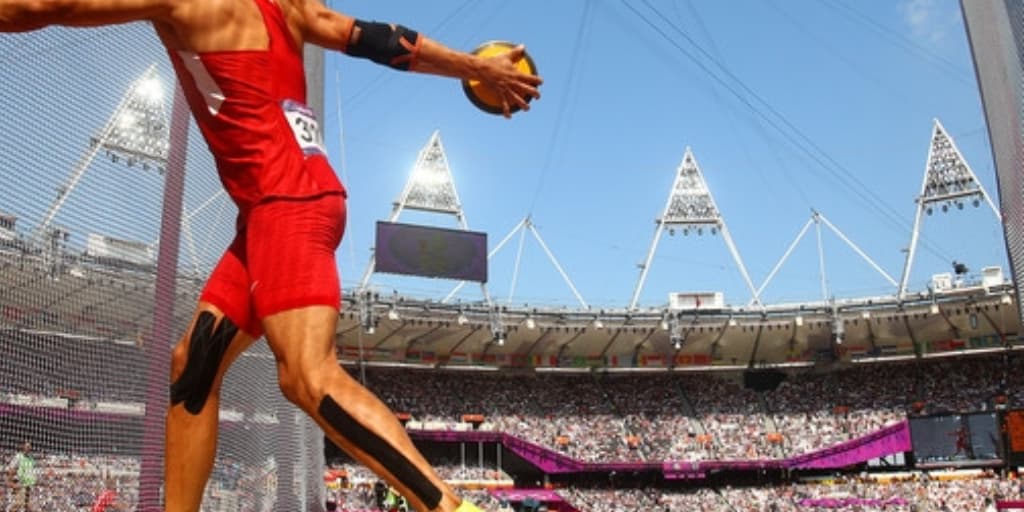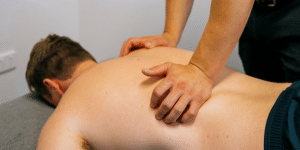K-Tape, does it work?

What is K-Tape/Dynamic tape/Stretchy tape?
Kinesio tape (K-tape) is basically a coloured, elasticated tape that adheres to the skin and depending on the orientation and placement, is claimed to aid muscular disorders and lymphedema issues. There are lots of different brands such as Dynamic TapeTM, RockTapeTM, and K-TapeTM which are all slightly different in terms of the materials, adhesive, and how they are used but essentially all fall under the banner of stretchy sports tape.
Kinesio tape is completely different to rigid sports tape. Rigid tape has been around for decades – it is usually flesh coloured and is commonly and effectively used to stabilise injured joints, especially the ankle, knee, shoulder, and thumbs.
Learn More: Ankle Taping vs Bracing: Which is Better?
When did people start using it?
These tapes burst into the limelight when Kinesio Tape was donated to over 50 countries during the 2008 Olympic Games and it could be seen on all some of the world’s biggest sports stars. Unsurprisingly its use exploded in the years that followed and for a time it was THE treatment for all types of sporting and other musculoskeletal issues for everyone, from elite athletes down to weekend warriors. On a side note, the hype from Rio 2016 has been all about the cupping bruises on American swimmer Michael Phelps’ back, but that’s an issue for another blog!

Does K-Tape work?
With all the brands of tapes claiming such strong arguments for their use you would suspect some high quality supporting evidence, so this month we’ve taken the time to have a good look.
In short there isn’t really any high quality evidence to support or negate these claims and this is because for every research paper claiming a positive effect there is another that refutes it.
So, should we use it or not?
There is no single intervention that helps everyone, so as usual the answer to this question comes down to the individual patient. Many people find that stretch tapes DO aid improved athletic performance or reduce their swelling, so there’s no problem with continuing the intervention. However, this becomes an issue when people begin to rely on it as their therapy and start to avoid their actual rehab!
In our experience the effect from these types of tapes is usually short lived and hard to predict. We don’t rely on them to give added strength or performance for every patient but that does not mean they won’t work for you. Stretch taping should never be used instead of a proper, physiotherapist-prescribed rehabilitation and exercise program but rather trialed as an adjunct that may help a little, a lot, or not at all.
If you have any questions about K-Tape/stretchy tapes or would like more information, contact us here or book an online appointment






